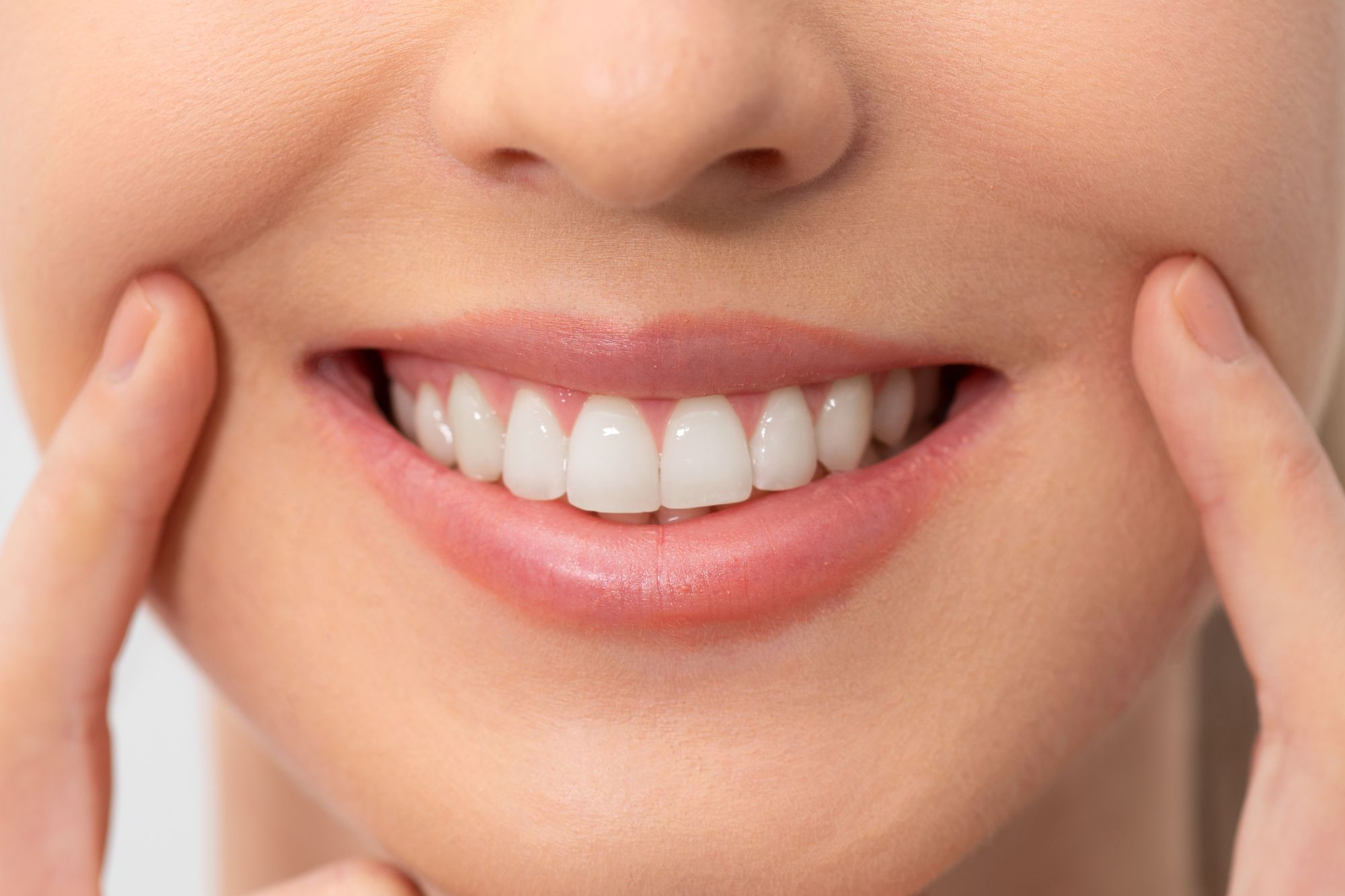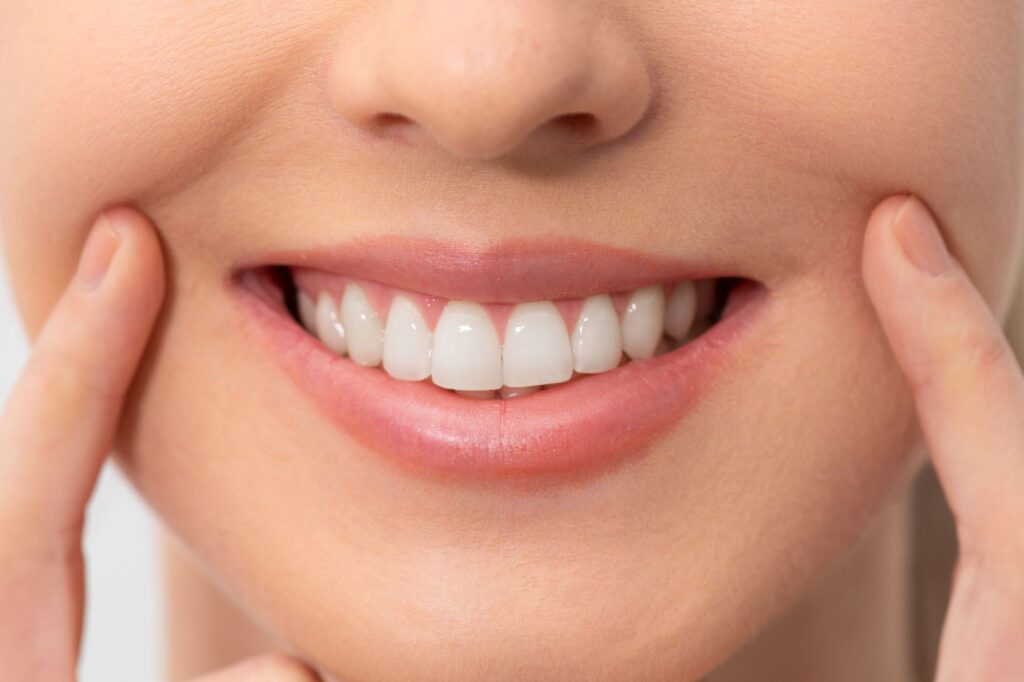The Ultimate Guide to Achieving Healthy Teeth and Gums

Table of Contents

Image Source: Canva
Introduction
When it comes to oral health, healthy teeth and gums are essential for a confident smile and overall well-being. Taking care of your mouth goes beyond just brushing your teeth; it involves adopting a comprehensive oral hygiene routine and making conscious choices to promote optimal dental health. In this ultimate guide, we will explore a wide range of tips, techniques, and insights to help you achieve and maintain healthy teeth and gums.
Understanding the Importance of Healthy Teeth and Gums
Your oral health is intimately connected to your overall health and well-being. Neglecting your teeth and gums can lead to various oral health issues, such as gum disease, tooth decay, and even tooth loss. Moreover, research suggests that poor oral health may contribute to other systemic conditions like heart disease, diabetes, and respiratory infections. By prioritizing the health of your teeth and gums, you are investing in your overall health and quality of life.
The Role of Plaque and Tartar in Oral Health
Plaque and tartar play a significant role in the development of dental problems. Plaque is a sticky film that forms on your teeth and contains bacteria, food particles, and saliva. If not effectively removed through regular brushing and flossing, plaque can harden into tartar, which is more challenging to remove and provides a breeding ground for bacteria. The presence of plaque and tartar increases the risk of gum disease and tooth decay. Therefore, it is crucial to adopt effective oral hygiene practices to keep plaque and tartar at bay.
Building a Solid Oral Hygiene Routine
Establishing a consistent oral hygiene routine is the foundation of maintaining healthy teeth and gums. The American Dental Association (ADA) recommends the following key practices:
Brushing Your Teeth
Brushing your teeth is a fundamental aspect of oral hygiene. Use a soft-bristled toothbrush and fluoride toothpaste to clean your teeth thoroughly. Here's a step-by-step guide to brushing your teeth effectively:
- Wet your toothbrush and apply a pea-sized amount of toothpaste.
- Hold your toothbrush at a 45-degree angle to your gums.
- Use gentle, circular motions to brush each tooth and the gumline.
- Spend at least two minutes brushing your teeth, focusing on all surfaces.
- Don't forget to brush your tongue to remove bacteria and freshen your breath.
- Rinse your mouth thoroughly with water.
Remember to brush your teeth at least twice a day, ideally in the morning and before bedtime. This regular practice helps remove plaque, prevent cavities, and maintain fresh breath.
Flossing Your Teeth
Flossing is an essential step in oral hygiene that targets the areas between your teeth and along the gumline. Follow these steps to floss effectively:
- Take about 18 inches of dental floss and wrap it around your middle fingers, leaving a few inches of floss to work with.
- Hold the floss tightly between your thumbs and index fingers.
- Gently slide the floss between your teeth, using a back-and-forth motion.
- Curve the floss around each tooth in a C shape, ensuring it reaches below the gumline.
- Move the floss up and down to remove plaque and debris.
- Use a clean section of floss for each tooth.
Flossing once a day helps remove plaque and food particles that your toothbrush may not reach, reducing the risk of gum disease and tooth decay.
Using Mouth Rinse
Mouth rinses, especially those containing fluoride, can complement your oral hygiene routine by providing additional protection against tooth decay. After brushing and flossing, swish with a mouth rinse for about 30 seconds, then spit it out. Mouth rinses help remove any remaining bacteria and freshen your breath.
Dental Sealants
Dental sealants are protective coatings applied to the chewing surfaces of the back teeth (molars and premolars) to prevent tooth decay. The sealants fill in the deep grooves and fissures of these teeth, creating a smooth surface that is easier to clean and less susceptible to decay. While commonly applied to children's teeth, adults can also benefit from dental sealants.
Maintaining a Healthy Diet for Oral Health
Proper nutrition plays a vital role in promoting healthy teeth and gums. What you eat and drink can impact the health of your mouth. Consider incorporating the following dietary habits into your daily routine:
Limit Sugary Foods and Drinks
Excessive consumption of sugary foods and drinks can contribute to tooth decay and gum disease. Sugars in these foods and beverages fuel the production of acid by bacteria in your mouth, which erodes tooth enamel and leads to cavities. Limit your intake of sugary snacks, sodas, candies, and processed foods. Opt for healthier alternatives like fresh fruits, vegetables, and low-sugar snacks.
Choose Calcium-Rich Foods
Calcium is essential for maintaining strong teeth and bones. Include calcium-rich foods such as dairy products, leafy green vegetables, almonds, and calcium-fortified orange juice in your diet. These foods help fortify your teeth and support overall oral health.
Stay Hydrated with Water
Drinking plenty of water throughout the day is beneficial for your oral health. Water helps wash away food particles, stimulates saliva production, and maintains proper hydration. Saliva plays a crucial role in neutralizing acid and protecting your teeth against decay.
Visit Your Dentist Regularly
Regular dental check-ups and professional cleanings are vital for maintaining healthy teeth and gums. Dentists have the expertise to identify and treat potential issues before they escalate into more significant problems. Here's why regular dental visits are important:
Comprehensive Oral Examination
During your dental check-up, your dentist will perform a thorough examination of your teeth, gums, and overall oral health. They may use various diagnostic tools, such as X-rays, to detect any underlying issues that may not be visible to the naked eye. Early detection allows for timely intervention and prevents the progression of dental problems.
Professional Teeth Cleaning
Even with diligent oral hygiene practices, some plaque and tartar may still accumulate in hard-to-reach areas. Dental professionals use specialized tools to remove stubborn plaque and tartar during a professional cleaning. This process helps prevent gum disease and maintains optimal oral health.
Personalized Oral Care Guidance
Your dentist can provide personalized guidance on maintaining oral hygiene, addressing specific concerns, and recommending preventive measures. They can advise you on proper brushing and flossing techniques, the use of dental products, and dietary choices that promote healthy teeth and gums.
Additional Tips for Healthy Teeth and Gums
Beyond the core principles of oral hygiene and a healthy diet, there are additional factors that can contribute to the overall health of your teeth and gums. Consider the following tips:
Avoid Smoking, Chewing Tobacco, and Excessive Alcohol Consumption
Smoking and chewing tobacco are detrimental to your oral health, leading to tooth discoloration, gum disease, tooth loss, and even oral cancer. Similarly, excessive alcohol consumption can dry out your mouth, promote tooth decay, and increase the risk of oral cancer. Quitting smoking, avoiding tobacco products, and moderating alcohol intake significantly benefit your oral health.
Manage Stress and Practice Good Oral Care Habits
Stress can have a detrimental impact on your oral health. High levels of stress can lead to gum disease, poor oral care habits, teeth grinding (bruxism), and other oral health issues. Practice stress management techniques, such as exercise, meditation, and self-care, to reduce the impact of stress on your overall well-being.
Address Underlying Medical Conditions
Certain medical conditions, such as diabetes, rheumatoid arthritis, and HIV/AIDS, can affect your oral health. It is crucial to work closely with your healthcare providers to manage these conditions effectively and minimize their impact on your teeth and gums.
Conclusion
Achieving and maintaining healthy teeth and gums is an ongoing commitment to your oral health. By following a comprehensive oral hygiene routine, maintaining a healthy diet, and visiting your dentist regularly, you can ensure a confident smile and optimal overall well-being. Remember, your oral health is a reflection of your overall health, and taking care of your teeth and gums is an investment in your lifelong wellness. Embrace these tips, practice them consistently, and enjoy the benefits of a healthy, vibrant smile for years to come.
Important Links
https://www.sensodyne.com/en-us/oral-health-tips/gum-health/tips-healthy-gum-teeth/
https://www.webmd.com/oral-health/ss/slideshow-teeth-gums
https://www.urmc.rochester.edu/encyclopedia/content.aspx?ContentTypeID=1&ContentID=1409
https://www.sarahpalmerdds.com/7-tips-for-healthy-teeth-and-gums.php
The information available on the Website is for general health information only and is not intended to be a substitute for professional medical advice, diagnosis or treatment. You should not rely exclusively on information provided on the Website for your health needs. All specific medical questions should be presented to your own health care provider and you should seek medical advice regarding and before making any changes related to your health.
If you choose to use the information available on the Website without prior consultation with and consent of your physician, you are agreeing to accept full responsibility for your decisions and agreeing to hold harmless Randall K. McVey, DMD PA, its agents, employees, contractors, and any affiliated companies from any liability with respect to injury or illness to you or your property arising out of or connected with your use of this information.
MedicAL DISCLAIMER
Patient Portal
help
Disclaimers
HIPAA
Accessibility
Privacy Policy & Cookie Policy
Terms & Conditions